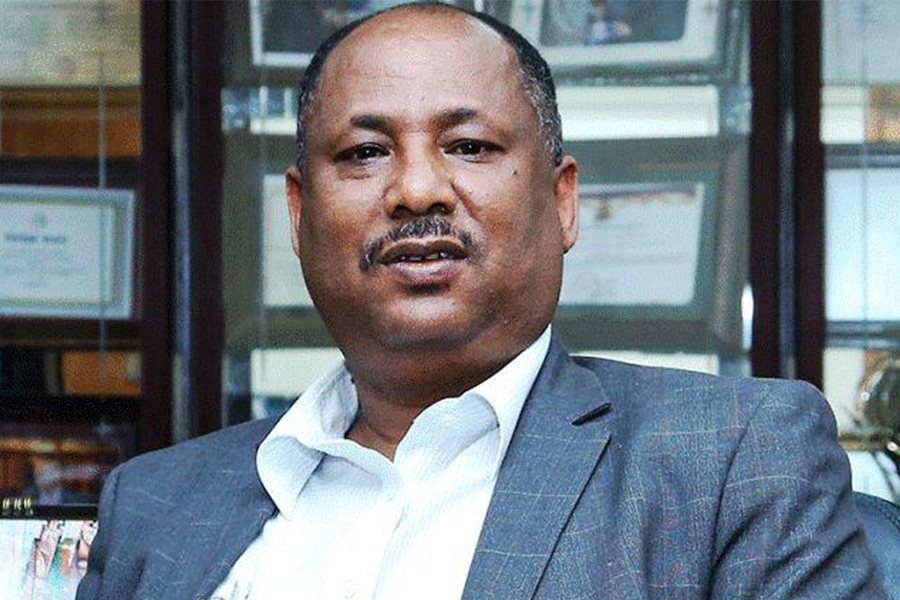
Verbatim | Apr 26,2025
Reminiscing about the past with my friend, he pointed out my anxiety like a caged animal eager to break free- consistently racing as if my life depended on it, with a perpetual look of urgency etched on my face. He was right.
My overachieving tendency all started young. The obsession with deadlines was more than a surface-level desire for control over time. But a deep-seated need to settle the debts and obligations weighed heavily upon me. I could not shake the feeling that I was forever indebted to those who guided and employed me.
The debt-saddling, smothering gaze of passengers and the imposing gates of Sidist Kilo, Addis Abeba University loomed before me. It was our path to success, to secure government jobs.
But fate, as always, had other plans.
I found myself pulled to the business faculty, captivated by the enigma of the balance sheet and the mysteries of accounting. As I pored over the ledgers, I could not help but wonder why course credit hours were not deemed debit hours.
During my time in the business faculty, I began to understand the weight of these principles. Accounting was not just a matter of numbers, but a lens through which we view the world and our place in it, encapsulated in a single sentence - "What I have, what I trust, what I owe, and what I am worth, all equal in the end."
As I delved deeper into my studies, I grappled with my indebtedness's true nature and extent. It was not to my employers or alma mater but to society. This realization was humbling and galvanizing, driving me to work harder and push myself further.
There is much more than meets the eye in the business world. As Peter Drucker wisely said, hearing the unsaid is the most important thing in communication. And what lies behind the seemingly simple accounting equations is a profound acknowledgement of trust, responsibility, and indebtedness.
In the end, it was all worth it.
As my graduation diploma arrived, a tangible symbol of my debt and obligations, I felt profound pride and responsibility. Through my education, the government had given me a debt of knowledge - and it was my duty to repay it by shaping a better future for myself and those around me.
Emerging from the ivy halls of academia, I was burdened with a new obligation- one of service. But it was not long before my zeal for excellence was fired up by a letter of commendation from my inaugural employer. I was briefly elated as I reflected on the management manuals I had consolidated in six months.
However, my bliss was quickly overshadowed by a chance encounter with the senior crusher mechanic from the Ethiopian Transport Construction Authority - a towering figure whose respect was immeasurable. So great was his worth that outsiders constantly pursued him, offering grand sums and a car with a colour to match his employer's fleet.
The tantalizing offer struck a realisation that one needed not hold the reins to lead a company. Instead, I pledged to make the mechanic my role model, a debt that weighed heavy on my conscience. It demanded constant striving to go above and beyond, exceed expectations, and leave an indelible impact.
Who doubts pleasure in the job puts perfection in work? My initial joy at receiving a letter of praise was tempered by the knowledge that the journey of learning was a lifelong pursuit. Each challenge revealed another layer of debt to repay and a different role model to learn from and emulate.
The crushing senior mechanic - a massive specific human capital of his enterprise who resisted irresistible offers - became my guiding light, inspiring continued growth and an unrelenting thirst for knowledge.
Wherever I went, the shadow of the "Bankrupt Merchant" seemed to follow me. I was at odds with the higher-ups in every enterprise I joined for presenting a truthful account of the occurrences. I was an accountant by attitude, and it was my duty to report on the financial health of every endeavour I was bestowed.
What went on with my previous employer is worth citing.
I was entrusted with foreign purchases, saving millions of birr, with the exercise's potential to save future tens of millions. This held the potential for a hundred million, if not billions, in foreign currency savings. When I probed into the accounting records, the accounting was nothing but fiction, the work of a Hunter S. Thompson character. This happened amidst a dead stock of more than 600 million Birr, enough to build a new stadium.
The CEO was distracted with his upcoming wedding, blinded by his priorities. He was a man of distinction, holding two doctoral degrees without a PhD. His quirks were as well-known as his intellect - fixated on the state of unattended water taps during staff meetings and using books as makeshift blankets on restless nights. He was the quintessential lone wolf; no management group was required in his eyes.
When I presented him with my accounting tome, his disdain was palpable. He spat that my lack of knowledge beyond accounting others for what they did made me a liability to the company. He even boldly suggested that termination was the only way to rein in the havoc my deficiencies wrought. But I outdid him, resigning the next day without a formal letter to my name.
As I departed, it became clear that I had been a witch doctor, casting accounting spells with little regard. And as I finalized my clearance papers, I could not help but wonder what fate awaited the company under the weight of its transactions. It was not long before the company shuttered its doors.
Peter Drucker's wise words rang true - what gets measured, gets managed.
The business world teaches us that indebtedness can be the currency of growth. As we strive to exceed expectations and make a significant and visible difference, we remain indebted to the journey and the opportunities to learn and grow.
It is up to us to continue learning and growing in our quest for knowledge, incurring debts of gratitude along the way.
Aristotle spoke of the importance of habit, stating that we are what we repeatedly do. Excellence, then, is not an act but a habit. Double-entry bookkeeping is no exception to this. It is through repetition and consistency that financial statements become a reflection of one's worth and responsibilities.
Success meant forever being chained to the wheel of debt and indebtedness, always striving for an elusive pinnacle of achievement. As we navigate the complexities of the world and strive for success, let us remain indebted to those who have inspired us to push us towards greatness.
PUBLISHED ON
May 13,2023 [ VOL
24 , NO
1202]


Verbatim | Apr 26,2025

My Opinion | May 03,2024

View From Arada | Dec 31,2022

Sunday with Eden | Jun 10,2023

News Analysis | Mar 16,2024

Life Matters | Aug 30,2025

Life Matters | May 24,2025

Commentaries | Mar 25,2023

Fortune News | Sep 02,2021

Viewpoints | Oct 26,2019

Dec 22 , 2024 . By TIZITA SHEWAFERAW
Charged with transforming colossal state-owned enterprises into modern and competitiv...

Aug 18 , 2024 . By AKSAH ITALO
Although predictable Yonas Zerihun's job in the ride-hailing service is not immune to...

Jul 28 , 2024 . By TIZITA SHEWAFERAW
Unhabitual, perhaps too many, Samuel Gebreyohannes, 38, used to occasionally enjoy a couple of beers at breakfast. However, he recently swit...

Jul 13 , 2024 . By AKSAH ITALO
Investors who rely on tractors, trucks, and field vehicles for commuting, transporting commodities, and f...

Nov 1 , 2025
The National Bank of Ethiopia (NBE) issued a statement two weeks ago that appeared to...

Oct 25 , 2025
The regulatory machinery is on overdrive. In only two years, no fewer than 35 new pro...

Oct 18 , 2025
The political establishment, notably the ruling party and its top brass, has become p...

Oct 11 , 2025
Ladislas Farago, a roving Associated Press (AP) correspondent, arrived in Ethiopia in...